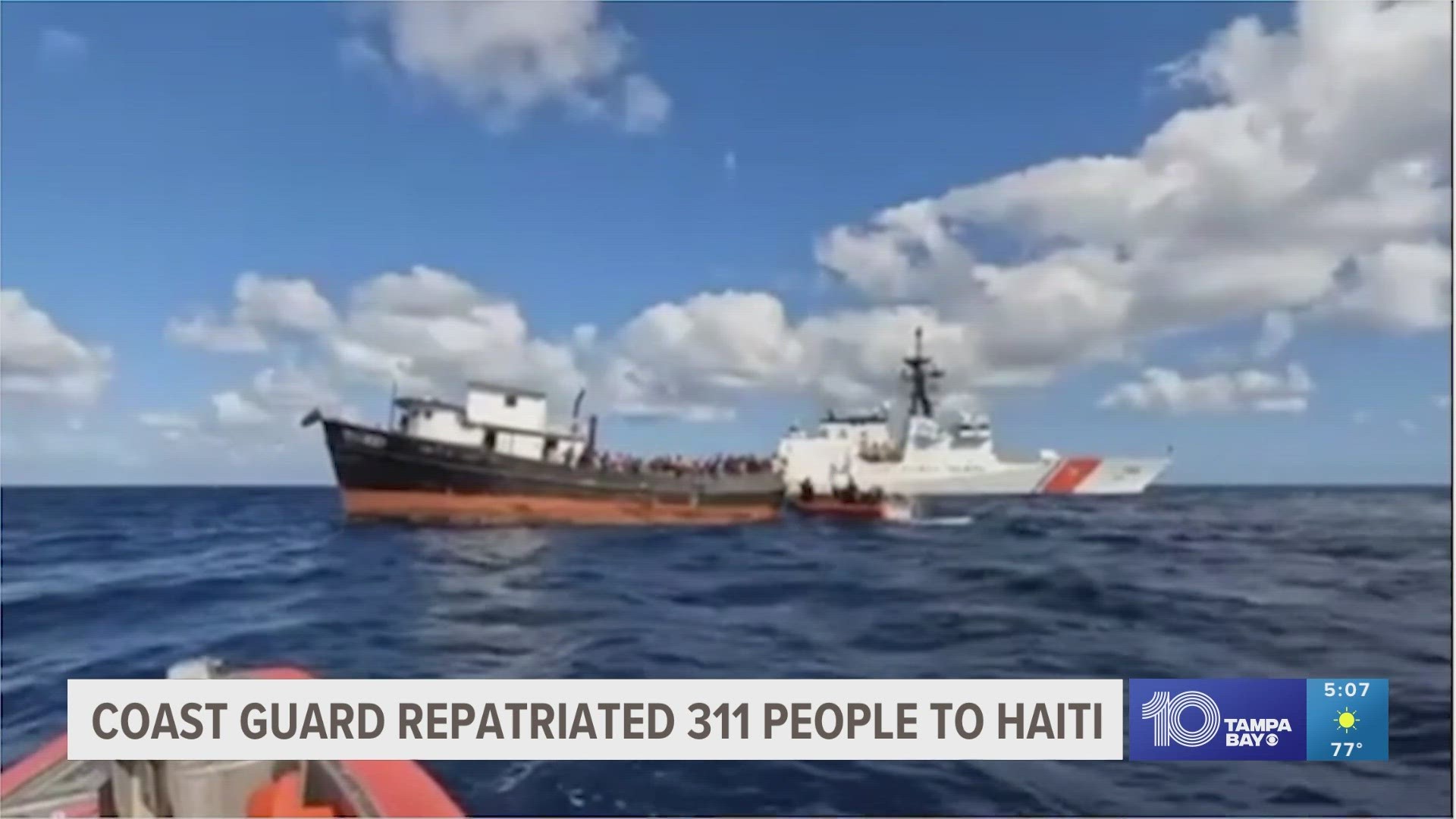ST. PETERSBURG, Fla. —
Top U.S. military officials said they are prepared for a potential “mass migration” of Haitians into Florida as their country faces a marked increase in gang violence and political instability.
During a hearing Tuesday for the House Armed Services Committee, Republican Rep. Matt Gaetz, who represents part of the Florida panhandle including Pensacola, pressed Department of Defense (DOD) officials on what their agency is doing to anticipate an influx of Haitian migrants and refugees.
“...I’ve spent time with the folks that are engaged in Operation Vigilant Sentry,” Gaetz said. Operation Vigilant Sentry is part of a Homeland Security Task Force that deploys the Coast Guard to respond to illegal immigration from the Caribbean.
“They say the number one push factor that drives these Haitians into Broward County, Palm Beach County...is the deterioration of conditions in Haiti,” he said.
Since Haitian President Jovenel Moïse was assassinated in July 2021, gang violence and political instability have progressively worsened. The situation recently became more chaotic after multiple gang attacks over the past month across the capital of Port-au-Prince targeting prisons, airports and law enforcement.
The United Nations estimates that since the start of the year, "a staggering 1,193 people have been killed, and 692 others injured by gang violence."
Rebecca Zimmerman, a Homeland Defense official, said the DOD is tracking the impact of Haiti’s unrest on immigration.
“At the moment, we have not yet seen large numbers – what we would characterize as a maritime mass migration...we are alert to that possibility,” she said. “So, we’ve recently approved some additional assistance that we can provide to the Coast Guard.”
Gaetz pressed further. He said that he’s been told by Coast Guard members in South Florida that naval vessels are needed to make sure the U.S. can handle a “mass migration” if it occurs, to help detain people suspected of trying to enter the country illegally and “repatriate” them to Haiti.
U.S. Army General Laura J. Richardson, commander of the U.S. Southern Command, said she hasn’t received any requests from troops stationed in southern Florida.
“I will talk with District 7 and our Coast Guard on the Atlantic side, Atlantic area, and see if they need additional DOD grey hulls,” Richardson said. “...if there’s a need for that I would absolutely request that.”
Gov. Ron DeSantis said in a statement Wednesday that his administration would deploy “over 250 additional officers and soldiers and over a dozen air and sea craft to the southern coast of Florida to protect our state.”
Those resources will come from the Florida Department of Law Enforcement, Florida Fish and Wildlife Conservation Commission, Florida National Guard and Florida Highway Patrol and the Florida State Guard.
Meanwhile, U.S. Defense Secretary Antony Blinken announced additional funding for the Multinational Security Support Mission approved by the UN Security Council in October 2023.
During a meeting with leaders from the Caribbean Community (CARCOM), Blinken said the U.S. has now pledged a total of $333 million to support the implementation of the plan. It would send funds, equipment, logistical support and police officers from several Caribbean and African countries to Haiti.
The goal of the mission is to “create the security conditions that are necessary to hold free and fair elections, to allow humanitarian assistance to get to the people who need it, and to help put Haiti back on a path to economic opportunity and growth,” Blinken said.
Haiti has not had a presidential election since Moïse was elected in 2017. Haitian Prime Minister Ariel Henry became the de-facto leader of Haiti after Moïse’s assassination. Henry had promised to hold elections but continued to push them off.
Days after gang leader Jimmy Chérizier threatened a “civil war” if Henry did not resign, Henry announced he would step down once a presidential council was created to oversee a transition of power.
“...only the Haitian people can, and only the Haitian people should determine their own future, not anyone else,” Blinken said. “But all of us here, CARICOM, the United States, our other partners, we can help.”
In 2022, Florida had the highest number of Haitian American residents with 544,043 people reporting their Haitian ancestry, according to the United States Census. A majority of the Haitian community lives in South Florida, and their cultural impact can be seen in neighborhoods like Little Miami, Opa-locka and North Miami.
On March 8, a federal judge upheld a program created by the Biden administration allowing a specified number of Haitian migrants to legally stay in the U.S. as asylum-seekers if they have a family member or sponsor in the country. People fleeing from Cuba, Nicaragua and Venezuela are also eligible to apply to the program, which grants them a work permit and the ability to remain in the U.S. for two years. It's referred to as a humanitarian parole program.
Migrants apply for the program online and, if approved, arrive at an airport. Haitian migrants legally entering the U.S. under the program would not travel by sea.

